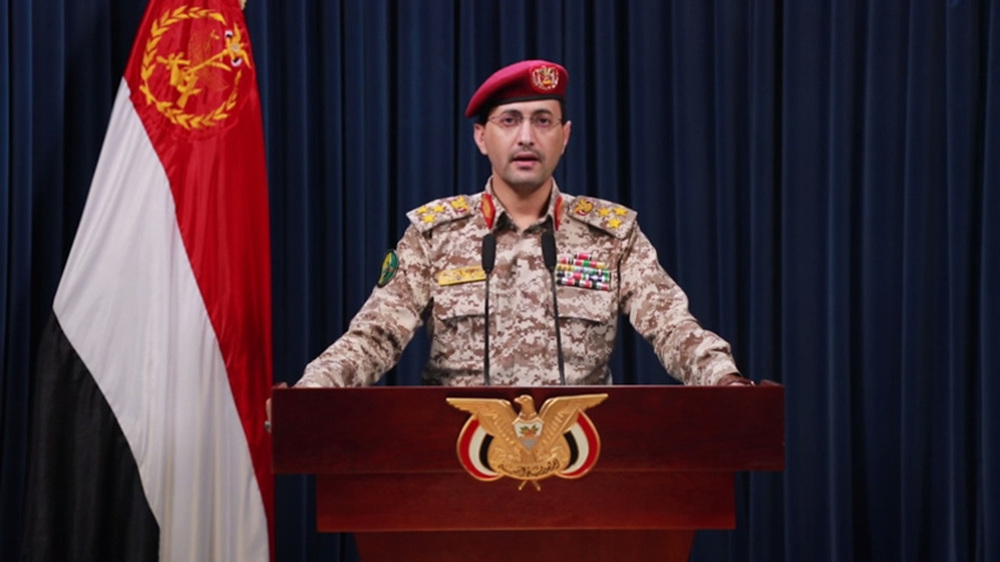UAE forced Yemen’s ex-president to support assault on Hudaydah: Report
The United Arabs Emirates (UAE) has reportedly forced Yemen’s former president, Abd Rabbuh Mansur Hadi, to come out in support of an Emirati-led offensive on the strategic port city of Hudaydah, which serves as the main conduit for humanitarian aid flow into the war-torn country.
Citing a “well-informed source,” the Middle East Eye reported that Abu Dhabi had initially intended to go for Hudaydah without the support of the former Yemeni president and “get the credit for it,” but later returned to the Hadi card as it failed to muster international support for the controversial military operation, which started on Wednesday.
“As international support diminished, suddenly the Saudis intervened and managed to arrange a meeting between UAE Foreign Minister Abdullah bin Zayed and Hadi,” which took place in Riyadh on Monday, the source said.
A day later, Hadi flew to Abu Dhabi to meet UAE Prime Minister Mohammed bin Zayed (MbZ), where the Yemeni ex-president acceded to the Emirati demands, the report said.
“The UAE found they need the card of Hadi’s legitimacy. Hadi had no choice but to accept. His hands were forced.”
On Wednesday, forces backed by the Saudi-led coalition launched an offensive against the Red Sea port city controlled by Yemen’s Houthi Ansarullah movement, which has taken state affairs in its hands since late 2014, when Hadi resigned as Yemeni president amid a political conflict and fled to Riyadh.
The UAE military, a key party to the Saudi-led alliance waging war on Yemen, is leading the Hudaydah assault, which the UN has warned could unleash a humanitarian catastrophe and lead to some 250,000 deaths.
According to the source, control of Hudaydah’s port would be a great victory for the UAE, which has been seeking to control ports all along Yemen’s coast.
With the aim of controlling the strategic waterways that lead up to the Suez Canal, the UAE has in recent years established a presence in several ports on the shores of the Horn of Africa across the strategic Bab el-Mandeb Strait, which connects the Red Sea to the Gulf of Aden.
“They (The Emiratis) tried to get [the Yemeni island of] Socotra. Hudaydah would have been another port they could have controlled,” the source said.
The source added that Hadi had effectively handed the Emiratis future control of Hudaydah by supporting the UAE-backed assault on the strategic city.
The Saudi military campaign began in March 2015 with the aim of reinstalling the Riyadh-friendly government of Hadi and crushing the Houthi Ansarullah movement.
In the course of the campaign, the Saudi regime and its allies managed to seize Aden from the Houthis. Hadi and the other former officials still loyal to him were supposed to be based in Aden, but the ex-president spends most of his time in the Saudi capital.
The MEE report said ties between Hadi and Abu Dhabi have soured further in recent months amid a dispute over the UAE’s military presence on Socotra Island, which Hadi’s government said was being colonized by the kingdom.
In February 2017, Hadi angrily confronted the top Emirati diplomat in Abu Dhabi, accusing Abu Dhabi of behaving like an occupier in Yemen.
The UAE had set a Tuesday deadline for the Yemeni Houthi Ansarullah movement to pull out of Hudaydah.
The Houthi movement has pledged strong resistance in the face of the assault on Hudaydah, which is said to be the largest of its kind since the onset of the war in early 2015.
On the first day of the operation, the Houthis and allied armed forces dealt a heavy blow to the aggressors, targeting a UAE warship with a missile off the coast of Hudaydah in a counter-attack.
According to a report by Russia’s Sputnik news, emergency crews rushed to save the forces aboard the vessel as it was sinking.
Hudaydah’s assault came as aid groups warned on Wednesday that some 300,000 children risk death, injury and starvation as they are trapped in Hudaydah, which is the main route for food to reach most Yemenis, 8.4 million of whom are already on the verge of famine.
Earlier in the day, the United Nations expressed deep concern over the assault by the Saudi-led coalition in Hudaydah as rights groups warned about the catastrophic repercussions of the offensive, which is considered the largest battle of the three-year war.
The Saudi-led coalition claims that the Houthi Ansarullah movement is using Hudaydah for weapons delivery, an allegation rejected by the fighters.
‘All wars have rules. All of those rules have been broken’ by Israel
VIDEO | Report flags India’s violation of rights of Rohingya detainees
Turkey's foreign minister meets Syria's de facto leader in Damascus
'Next to impossible' to rescue patients from Gaza's Kamal Adwan Hospital: Director
VIDEO | Vietnam current prosperity
Report blames gasoil exports for shortage at Iranian power plants
VIDEO | Hind Rajab Foundation names Israeli war criminals vacationing after Gaza genocide
VIDEO | Australians rally for Gaza ahead of Christmas festivities










 This makes it easy to access the Press TV website
This makes it easy to access the Press TV website